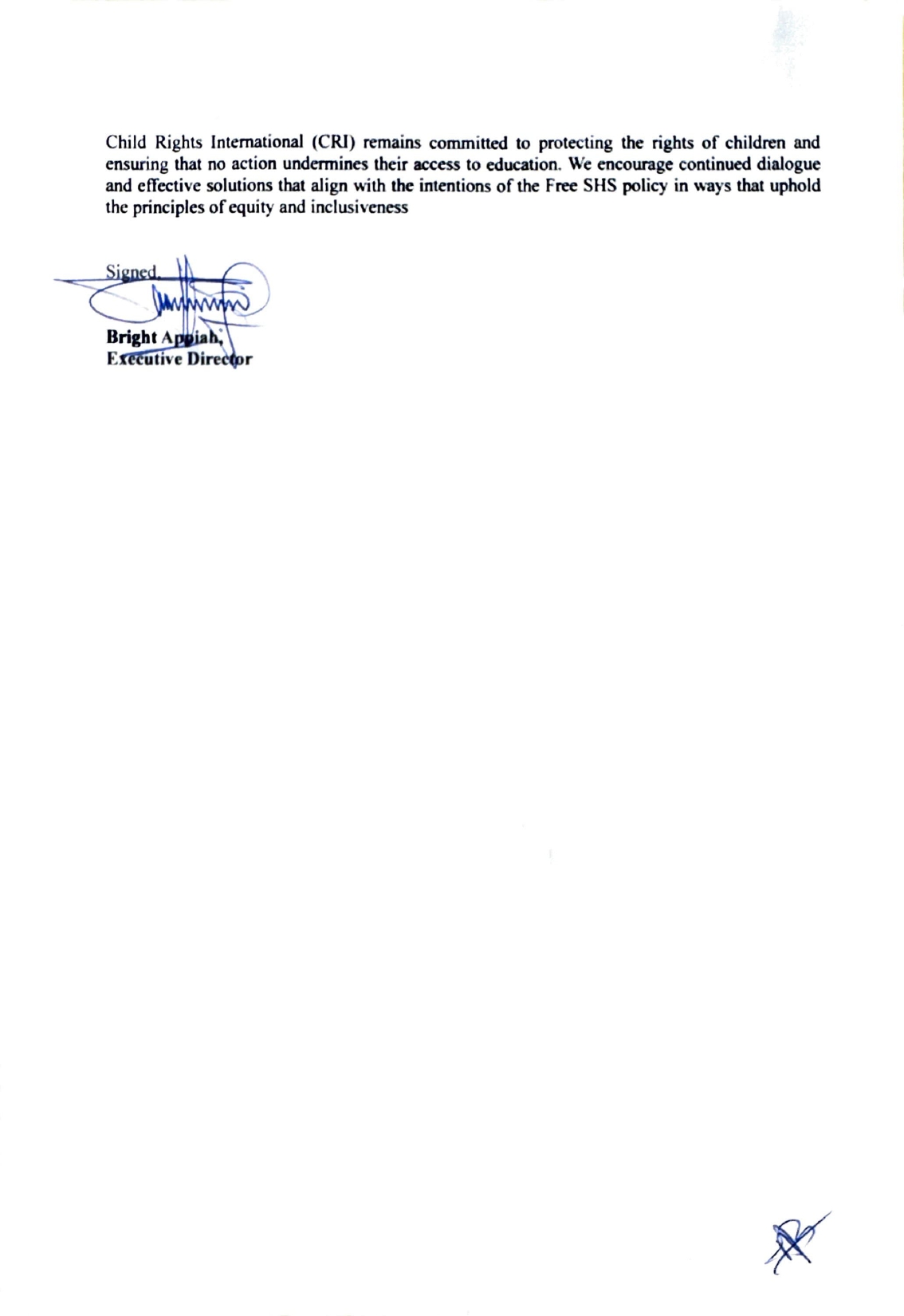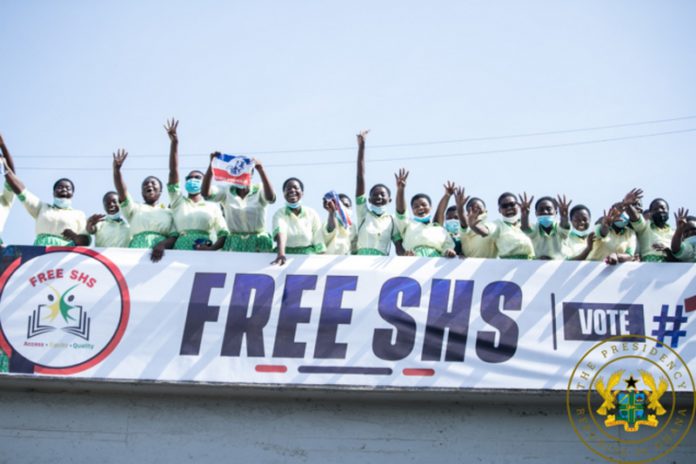Child Rights International has strongly condemned proposals to shift the cost of feeding students under the Free Senior High School (Free SHS) policy to parents.
In a statement dated January 11, 2025, the organization emphasized the importance of safeguarding the integrity of the Free SHS initiative, which it described as a transformative program that has significantly expanded access to education since its inception in 2017.
The group firmly rejected suggestions that parents should bear the cost of feeding and providing essential supplies for their children in senior high schools, arguing that such measures would undermine the core principles of the Free SHS policy.
“The Free SHS program was established to eliminate financial barriers to education and promote inclusivity for all Ghanaian children. Proposals to transfer feeding costs to parents erode these foundational principles,” the statement read.
Since its launch, the Free SHS policy has been hailed as a landmark social intervention. By covering tuition, feeding, accommodation, and other associated expenses, the program has enabled millions of students, particularly those from low-income families and underserved areas, to pursue secondary education.
The initiative has been particularly impactful in rural areas, where the high cost of education previously prevented many families from sending their children to school. It has contributed to increased enrollment, reduced dropout rates, and improved literacy levels across Ghana.
Despite its successes, the program has faced challenges, including overcrowded classrooms, delays in fund disbursement, and feeding-related logistical issues, prompting public debate over its sustainability.
Child Rights International emphasized that any reforms to the Free SHS policy must focus on addressing these challenges without compromising its foundational benefits.
“The program must remain a vehicle for accessible education, and reforms should strengthen, not weaken, its impact on Ghanaian children,” the organization urged.
Below is the statement.



